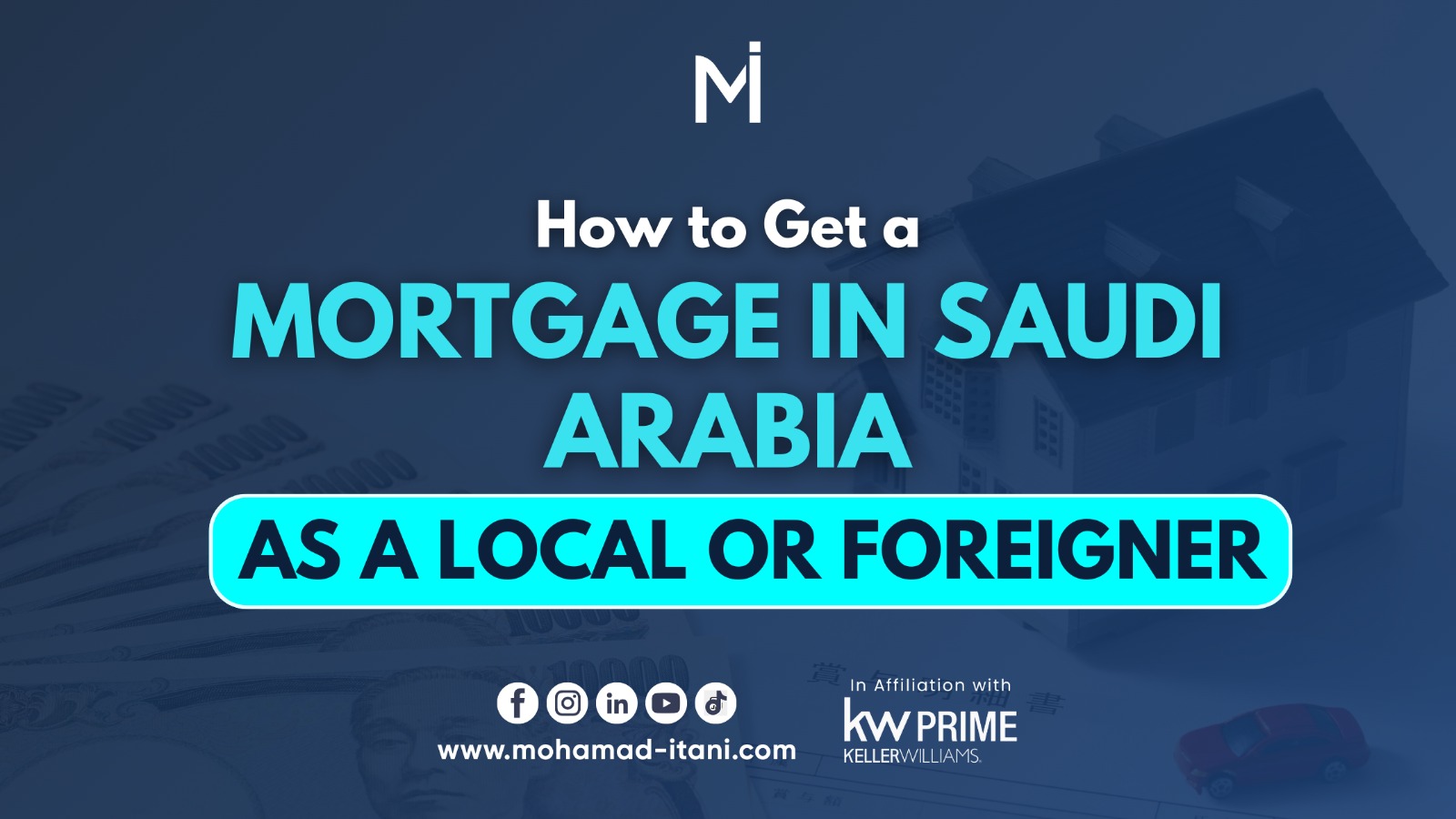How to Get a Mortgage in Saudi Arabia as a Local or Foreigner
Introduction
Saudi Arabia’s property market is no longer just about cash deals. With Vision 2030 encouraging home ownership and opening doors for international investors, mortgages are becoming a practical route for both Saudis and expats. If you are looking for a mortgage in Saudi Arabia, you’ll find plenty of options ranging from home loans Saudi Arabia banks offer to foreigner mortgage KSA solutions in select projects.
This guide walks you through the essentials: who qualifies, how to apply, and the best way to secure a good deal whether you are buying your first home or investing in the future.
Understanding Mortgages in Saudi Arabia
What is a Mortgage in Saudi Arabia?
In simple terms, a mortgage lets you buy a property now and pay for it gradually. Instead of paying the full price upfront, the bank covers most of it, and you repay in monthly installments.
The difference here is that most mortgages in Saudi Arabia are Shariah-compliant housing finance KSA products. For example, in an Ijara arrangement, the bank buys the property and leases it to you until you’ve paid it off. In Murabaha, the bank buys the property and sells it back to you at a profit spread over your installments.
Types of Home Loans in Saudi Arabia
- Fixed-rate mortgages: Your monthly installment stays the same for the entire term.
- Variable-rate mortgages: Payments may rise or fall depending on market conditions.
- Islamic finance products: Designed to avoid direct interest, making them popular among both Saudis and expats.
Eligibility Criteria for a Mortgage
For Saudi Nationals
If you are a Saudi national, the process is much simpler:
Banks usually expect a stable job and a monthly salary of at least SAR 5,000–7,000.
- Most require you to be between 21 and 60 years old.
- Having a clean credit history helps speed up approvals.
Example: Ahmed, a 32-year-old IT engineer in Riyadh, was able to secure a mortgage from Al Rajhi Bank with a 20-year repayment plan. His steady income and strong banking history gave him favorable terms.
For Foreigners
If you are an expat or a foreign investor, there are extra rules to keep in mind:
You can only buy property in designated areas (like Riyadh, Jeddah, or NEOM).
- A valid Iqama (residency permit) is required.
- Banks often set higher down payment requirements for non-Saudis.
Example: Maria, a British expat working for a multinational company in Jeddah, secured a mortgage through Samba Bank. The bank approved her because her employer was on their list of “trusted companies,” but she had to pay 35% upfront.
How to Apply for a Mortgage in Saudi Arabia
Step 1 – Research Saudi Banks Property Loans
Start by comparing options from top lenders such as Al Rajhi, Riyad Bank, and NCB. Each has its own profit rates, repayment terms, and eligibility criteria.
Saudi Central Bank (SAMA) regularly publishes updates on mortgage guidelines.
Step 2 – Gather Your Documents
Typically, you will need:
- National ID or Iqama (for expats)
- Salary slips and employment verification
- Bank statements (6–12 months)
- Property details and valuation report
Step 3 – Submit and Wait for Approval
Once submitted, the bank reviews your documents, checks your affordability, and runs a credit assessment. Approval can take a few days for Saudis but may stretch to weeks for expats.
Mortgage Options for Property in Saudi Arabia
Local Banks and Islamic Finance Institutions
Most mortgages are offered through Shariah-compliant contracts, which attract both Saudis and Muslim expats. Al Rajhi and NCB are especially popular choices.
Government Housing Programs
Saudi nationals benefit from programs by the Ministry of Housing and the Real Estate Development Fund, which provide subsidized financing.
You can also explore our step-by-step guide to registering property in Saudi Arabia.
Foreigner Mortgage KSA Options
For expats, some banks (like Samba and Riyad Bank) do provide mortgage services, but usually for specific areas and with stricter rules.
Challenges in Getting a Mortgage
High Down Payments
Most foreigners face at least a 30–35% down payment, which can be challenging for first-time buyers.
Regulatory Restrictions
Expats cannot buy in Makkah or Madinah, and approval depends on the bank’s policies.
Lengthy Approvals
While Saudis may get approvals in under two weeks, foreigners often wait longer due to additional verifications.
Tips for Securing the Best Mortgage Deal
- Compare multiple banks before committing.
- Negotiate repayment terms; some banks allow early settlement without heavy penalties.
- Align mortgage with investment goals; for example, if renting out, check expected rental yields to ensure mortgage payments are covered.
To compare profitability, see our rental yield comparison: Riyadh vs Jeddah.
Future Outlook
Saudi Arabia aims to raise homeownership to 70% by 2030, which means mortgages will continue to expand. Mega projects like NEOM and The Line are already creating interest from foreign investors.
According to a Knight Frank report, mortgage volumes have doubled in the past five years and are expected to keep growing.
Conclusion
Getting a mortgage in Saudi Arabia can feel complex at first, but the system is becoming more transparent and accessible. Saudis benefit from government-backed support, while foreigners also have growing opportunities in selected regions.
The key is preparation: understand eligibility, compare offers, and have your documents ready. Whether you are looking at home loans Saudi Arabia banks offer, or specific foreigner mortgage KSA solutions, there are pathways available today that simply didn’t exist a decade ago.
If you’re ready to explore property financing, start with research and consider professional advice. The right mortgage could be your gateway to long-term success in the Kingdom’s thriving real estate market.
FAQs
Q1. Can foreigners get a mortgage in Saudi Arabia?
Yes, in approved areas like Riyadh, Jeddah, and NEOM, but stricter rules apply.
Q2. What salary do I need for a mortgage in KSA?
Most banks require SAR 5,000–7,000 for Saudis and higher for expats.
Q3. Which banks offer expat mortgages?
Samba, Riyad Bank, and sometimes Al Rajhi, depending on employer status.
Q4. Are mortgages Shariah-compliant?
Yes, most follow Ijara or Murabaha models.
Q5. Is cash better than mortgage in Saudi Arabia?
Cash is faster but mortgages spread costs and allow larger investments.













